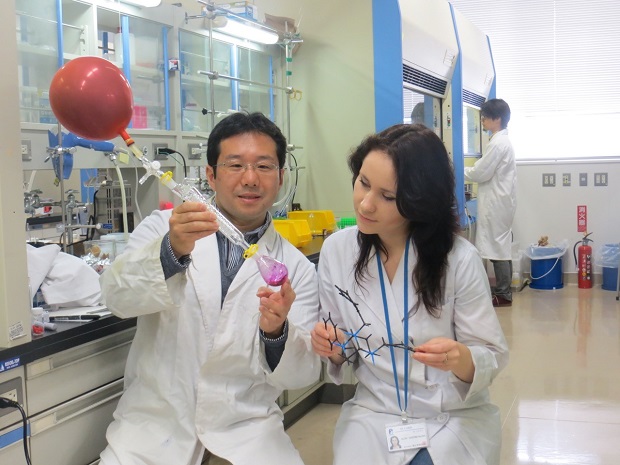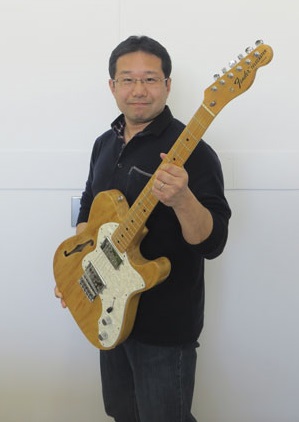Mar. 23, 2018
Drug production inside our bodies
Katsunori Tanaka, Chief Scientist

Biofunctional Synthetic Chemistry Laboratory , Chief Scientist Laboratories
What made you decide to become a scientist?
I wanted to become a guitarist in my youth. However, I quickly discarded this plan when I realized that there are much more meaningful career choices that provide more stable lifestyles. Since chemistry was my second love, my path in life was an easy choice to make.
How did you become interested in your current field of research?
I like to continually strive for new ideas and unexplored concepts. And since the fields of bio-orthogonal chemistry and biocompatible metal complex catalysts are booming, it will only be a matter of time before the next great discovery revolutionizes the field.

What excites you the most about your current research?
I’m most excited when we’re able to apply our research clinically (in addition to writing good papers, of course). For instance, one of our chemical reactions has shown great promise in rapidly diagnosing and treating cancerous cells in human patients. Being able to explain the end result of our research in an understandable context to family and friends fills me with great pride. As scientists, I think it’s critical that we always endeavor to conduct research that could potentially contribute to better care.
Please briefly describe your current research. Why is it important?

My lab is exploring a range of research projects, from developing glycan-directed molecular targeting strategies to searching for novel biocompatible chemical reactions. Our ultimate goal is to amalgamate these studies to develop ‘therapeutic in vivo synthetic chemistry’, which involves causing chemical reactions inside our bodies to create drug molecules only at specific locations (for example, near tumors). Currently, drug therapies are largely limited to administering already formed molecules, and there is very little control over how their effects are distributed throughout the body. Therapeutic in vivo synthetic chemistry promises to be a new way to deliver and control medicine that potentially could revolutionize the way illnesses are treated and help to limit the side-effects of drugs.
How has being at RIKEN helped your research?
Aside from access to world-class facilities, RIKEN provides the chance to collaborate with a wide array of talented researchers. With the tremendous support and help of my peers, I am emboldened to pursue ideas from every corner of my mind, even if they require multidisciplinary techniques and approaches. I’ve also received valuable help and guidance in ensuring the clinical applicability and commercialization of my work. All of these elements inspire me to work for the future of my children.
How do you balance family life with your work at RIKEN?
Rather than be a ‘jack of all trades, master of none’, I think it’s critical for young people to understand that sometimes success can only be obtained through pure devotion and dedication; just like focusing on one discipline during university. Eventually, all the other pieces fall into place as you learn to grow into your role as a researcher, spouse and parent.
